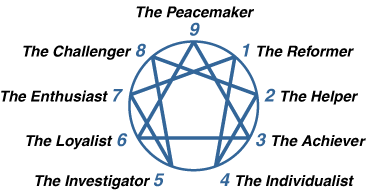The texts from the Roman Catholic Lectionary today challenge us to act with the Spirit as agents for the restoration of relationships following the example of our “Our All-powerful Physician.”
 |
| Restorer of the breech |
The reading from the Book of Isaiah declares we shall be called the repairer of the breach as we attend to authentic Sabbath observance that leads to blessing.
* [58:13–14] Sabbath observance becomes a cornerstone of postexilic piety; cf. 56:2, 4, 6.1
Psalm 86 is an individual lament and supplication for help against enemies.
* [Psalm 86] An individual lament. The psalmist, “poor and oppressed” (Ps 86:1), “devoted” (Ps 86:2), “your servant” (Ps 86:2, 4, 16), “rescued from the depths of Sheol” (Ps 86:13), attacked by the ruthless (Ps 86:14), desires only God’s protection (Ps 86:1–7, 11–17).2
In the Gospel of Luke, Jesus calls Levi the Tax Collector.
* [5:28] Leaving everything behind: see note on Lk 5:11.3
Eileen Burke-Sullivan comments that the three “tools” of the life of partnership with Jesus are prayer, fasting and alms giving. Prayer occurs when we are in the right relationship with God, fasting rightly marks a healthy relationship with our own bodies and a just participation in the created order. Alms giving rightly understood stands as a marker for authentic relationship with all other humans. “Alms giving” is the appropriate sharing of material goods so that all have enough of the limited resources of creation to thrive in their human life.
Today’s Gospel from Luke reminds us that God’s work is rescuing each one of us from our death choices and opening us up to life choices again. When we judge those who frighten us, or refuse to embrace God’s mercy for them or for ourselves, we step off the path of life – and follow the desolation of the Dark Spirit or the enemy of human flourishing. Jesus’ work, and ours since Baptism, is to open the doors of life within our own hearts to those who haven’t found the path to life. As we have been invited to be forgiven, so must we invite others to forgiveness and the joy of God’s Mercy.4
Don Schwager quotes “Our All-powerful Physician,” by Augustine of Hippo, 354-430 AD.
"Our wound is serious, but the Physician is all-powerful. Does it seem to you so small a mercy that, while you were living in evil and sinning, he did not take away your life, but brought you to belief and forgave your sins? What I suffer is serious, but I trust the Almighty. I would despair of my mortal wound if I had not found so great a Physician." (excerpt from Sermon 352, 3)5
The Word Among Us Meditation on Isaiah 58:9-14 observes that often we need to look at why we say the things we say. And that’s where Jesus comes in—to help us look inside our hearts to see the root causes of our hurtful speech. Because that’s where a lot of it comes from. Ask any counselor, and they will tell you that people who have been hurt often hurt other people. Or they will tell you that our hurtful words often come from our own self-centered desires and our frustration that people aren’t treating us the way we think we deserve.
We often think that Lent is a time when we do things for God. But it’s also a time when God wants to do things for us. As you continue your Lenten journey, ask him to help you put away unkind remarks and reactions. If you slip up, think about what may have caused you to act in that way. Then ask Jesus to heal you—and trust that he can.
“Jesus, heal my heart so that I speak only words of love, encouragement, and mercy.”6
Friar Jude Winkler connects our generosity to others to our openness to accept generosity from God. The Pharisees were concerned that sin was a contagion. Friar Jude reminds us that people are transformed by Love and not by guilt or fear.
Fr. Richard Rohr, OFM, introduces a recent Living School student, Dr. Jerome Lubbe, a functional neurologist and co-founder of Thrive NeuroTheology. He has developed a science-based method to understand the Enneagram which he explores in his book Whole-Identity: A Brain-Based Enneagram Model for (W)holistic Human Thriving. We are not a personality type or number on the Enneagram. We are a whole person who has a whole identity—we are all nine numbers. . . . Tools like the Enneagram are meant for expanding awareness of the whole. . . .
When you shift the Enneagram Framework from being a number to having efficiencies in all nine numbers, the Enneagram language shifts with it. It becomes about nature and values instead of type and reductive behaviors. For example, number Seven, traditionally associated with the title of “Enthusiast,” is instead represented by the innate human capacity for “Enthusiasm” as well as the value of “Experiences.”
“I am an enthusiast” becomes “I value experiences” which allows more room for nuance, invites growth and begs the question, “. . . and what else do I value?”. . . There is no human who is defined by a single number. [1]7
The prayer, fasting, and almsgiving of Lent help orient our concern to the needs of others as the Spirit leads us to ways of contemplation of our wholeness and connectedness.
References




